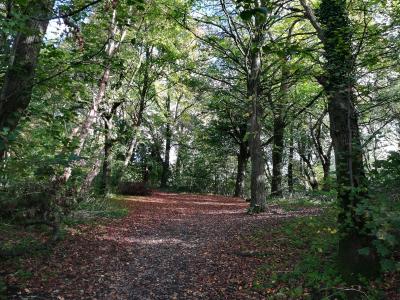Over this year and next, the council will plant more than 30,000 additional trees at a variety of locations across the city and invest £400,000 each year in maintaining our existing trees, bringing environmental benefits to residents across the city.
The plans support the council’s Tree and Woodland Strategy and Open Space Strategy, as well as forming part of the response to its Climate Emergency declaration made in July 2019.
Although the tree planting programme has been impacted by Covid-19 restrictions, it re-started this month at Oak Street Open Space in Merridale with the creation of the Black Country’s first Tiny Forest.
The forest, made up of 600 densely planted native trees, will offer a place for local schoolchildren and residents to explore and learn. The initiative is led by Earthwatch Europe and jointly funded by City of Wolverhampton Council and the OVO Foundation under its Climate Changers programme. A second Tiny Forest is also planned for development in Bilston.
The council’s planting programme will continue this autumn and into next spring with 20,000 trees added to parks and open spaces across the city, funded by almost £130,000 from the Woodland Trust’s Emergency Tree Fund. Local communities will be invited to get involved with planting native species such as English oak, hawthorn, crab apple, silver birch and hazel.
A range of other schemes, many involving local communities, are also being planned across a number of city parks and open spaces to complement those that have already taken place at Fowlers Park, Penk Rise, Heath Town Park and Bantock Park.
Wolverhampton is part of the Black Country Consortium’s plans to carry out a detailed survey of tree coverage in the Black Country. This programme, also funded by the Woodland Trust’s Emergency Tree Fund, will help us to identify where best to plant the extra trees for maximum benefit.
In addition, the city is supporting the West Midlands Virtual Forest which records every tree planted on a website developed by the West Midlands Combined Authority, creating a virtual map of all trees planted across the region.
Councillor Steve Evans, cabinet member for city environment, said: “We know we have a climate emergency and as a council we want to be carbon neutral by 2028.
“Our planned planting is a key way of helping us to reach that goal as trees capture carbon from the atmosphere. The additional planting work we are doing absolutely demonstrates our commitment to making Wolverhampton a cleaner, greener city to live in.”
Councillor Barbara McGarrity, the council’s champion for climate change, said further tree planting had been carried out this month in the Spring Vale ward, in Hessian Close and along the Birmingham New Road, using councillor ward funds.
She said: “Climate change is a very real threat and one of the ways we can help protect our planet for future generations is to plant additional trees. They create a habitat for wildlife, reduce the effects of summer heat and limit the risk of flooding.
“Not only are trees good for our environment, they are good for us too. Getting out into nature provides a very real boost for our physical and mental well-being.”
For more information please visit West Midlands Virtual Forest.
